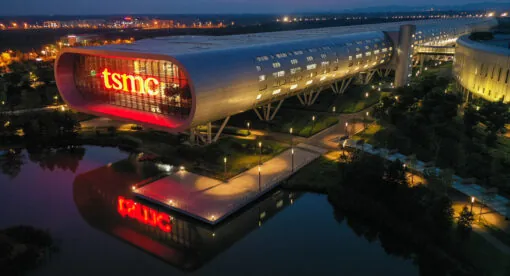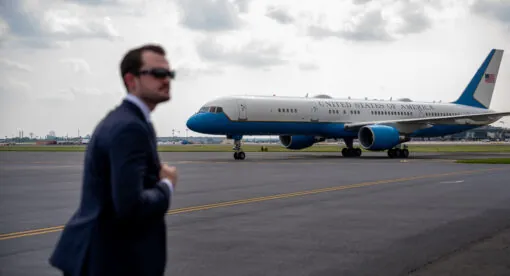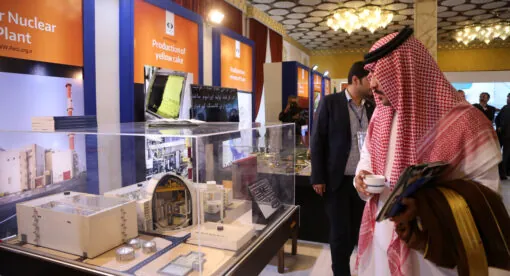In the latest episode of the Eurasian Connectivity podcast, New Lines Senior Directors Kamran Bokhari and Eugene Chausovsky break down the strategic analysis behind their latest report on the Trans-Caspian Corridor and regional geopolitics.
Kamran Bokhari:
Hello, everyone. Welcome to another episode of Eurasian Connectivity. I am Kamran Bokhari, your host, and I have with me today my friend and my colleague, Eugene Chausovsky. Eugene and I, as you probably know, have published a major report on the Trans-Caspian Corridor, and that will be the topic of our conversation.
This report comes at a very exciting time. Just today, there are four different developments in the making, which impact the report and the project itself. You have President Putin in Kazakhstan. I think it’s his third trip to that country since March, and he’s there to discuss ways in which to increase trade flows through Central Asia eastwards at a time when the West has placed enormous sanctions on him because of the war in Ukraine.
Meanwhile, we have the upcoming meeting, I think it’s next week, that President Biden and President Xi will be having in San Francisco. And from the looks of it, it seems like it’s going to be something significant. How significant, we just don’t know yet.
Meanwhile, we have the situation in Nagorno-Karabakh, where just today, President Aliyev did a military parade in the capital of the region that recently Azerbaijani forces were able to retake from Armenia. So that conflict is not going away anytime soon, although the fighting has ended.
And then lastly, you have the presidents of Turkey, Iran, and Pakistan, or the Prime Minister of Pakistan, visiting Uzbekistan for an Eurasian economic meeting to discuss ways in which to develop trade between South Asia, Middle East, and Central Asia.
So with that, I’m going to hand the mic over to Eugene. So Eugene, what do you make of all of this in the light of what we just published?
Eugene Chausovsky:
Yeah, thanks, Kamran. So as you lay out, there’s a lot going on right now in the Eurasian supercontinent, and particularly when it relates to the Trans-Caspian region.
I think one way of perhaps thinking about this from a very broad level, you have one, I would say, overarching theme here, which is a growing multipolarity that we’ve seen playing out in terms of not only the West, but also Russia, China, and even some regional players, you mentioned some of them, like Turkey, Iran, becoming increasingly active throughout this region, both in the Caucusus and in Central Asia. So that has created with it a lot of dynamism, some of which has created some opportunities for countries like the US, but also present a lot of challenges as well.
So we can dive into any one of these different developments that you mentioned. I think two kind of broader developments to keep in mind as we’re looking at what the US and what the West can do to enhance its engagement in this region from a connectivity perspective is one, obviously Russia is very much distracted, and to some extent, weakened from the war in Ukraine, which is now almost two years running. And at the same time, we’ve seen China, which has also been very active through its BRI Initiative, especially in Central Asia, seeing some economic difficulties that are really coming to pass.
Now, I would just say that Russia and China are still very active in this region despite these challenges that they’ve faced. So really, we have a number of opportunities and a number of challenges, which I’m sure we’ll get into here in this conversation.
Kamran Bokhari:
Thank you. And I want to tell our listeners that Eugene has a report coming out on China and Central Asia from the Caspian Policy Center, which discusses the other dimension, the opposite end of this Middle Corridor that it is called popularly, or as we’re calling, the Trans-Caspian Corridor.
So Eugene, there are a lot of things that the US and China need to talk about on a bilateral level. On a global level, these are the two largest economies of the world, and given the great power competition heating up, it seems to me that President Xi deciding to come to San Francisco suggests that there may be some meeting of minds. And again, to what extent, we just don’t know. But this was a meeting we weren’t sure would actually happen, and now it seems like it will.
So in the context of what we’re arguing for in our report, that the United States needs to work with its allies and partners to develop this connectivity between the West and the heart of Eurasia, how does that impact China, and more importantly, is there a way for the United States and China to cooperate here? Unpack that for us.
Eugene Chausovsky:
It’s a really important question. So I guess I would start off by saying that the US-China relationship is obviously a very contentious one, but also a very complex one. Unlike the US relationship with Russia, for example, or the West’s relationship with Russia which has been severely damaged, especially since Russia’s full-scale invasion of Ukraine, but going back almost a decade to when the Ukrainian conflict first started, trade ties have been largely curtailed. Obviously, the US and EU have passed sanctions against Russia. they’ve done everything that they possibly can to diversify their trade, and especially energy relationship, away from Russia. So really, they’re essentially trying to cut off ties completely.
Now, over all of the disputes, over everything from the Ukraine conflict, but also Russia’s involvement in other conflicts around the world, its support of backing actors like Assad in Syria, the relationship with North Korea, et cetera, et cetera. So there’s a lot of disputes there between the US and Russia.
Now, when China’s concerned, obviously there’s no shortages of disputes there as well. Taiwan obviously comes to mind, the South China Sea dispute, and really the broader disputes over things like the technology, semiconductors. we’ve seen a a lot of back and forth in terms of limiting that. But the big difference I would say is that the US and China and the West and China have a much more substantial economic relationship and very much depend on the continuing trade and investment ties, despite all of those tensions that I mentioned. And really, it just reflects the fact that they need one another when it comes to the global economy, when it comes to preserving their own economic and financial positions. That’s a very much intertwined relationship that doesn’t follow the mold of the US-Russia or really of the Cold War-era West and Soviet relationship.
So I think this frames what you bring up, Kamran, with Xi and Biden meeting. There’s a lot to discuss, there’s a lot in contention, but there’s a lot of shared interest as well. First and foremost, of just preventing broader economic fallout and all of the political and security challenges that would entail.
Kamran Bokhari:
So let me ask you, follow up with what you just said with more tactical level question. As our report discusses, and we’re focused on, if you will, the Western end of this corridor, focusing on the Trans-Caspian component because the Middle Corridor extends from China all the way to Europe. And we know that China has had a headstart in developing infrastructure, transportation networks, energy projects in areas of Central Asia more closer to its borders, and the whole BRI is all about that.
So is there a way in which there could be some form of, I’m not going to say formal cooperation, but some cooperation, coordination where the efforts that the US will put in along with Europe to build that connectivity with the West, can somehow be of benefit to China, and what the Chinese have already done can be of benefit of the United States? And now, I say this with the thought in mind that this relationship is very, very acrimonious, but as you said, there is a lot of room for coordination, cooperation, collaboration. So tell us a bit about that on a more tactical scale.
Eugene Chausovsky:
Yeah. So I think that essentially the way that this has been framed thus far on the US and Western side, I wouldn’t necessarily say it’s a major point of conflict necessarily, but it is a competition with China for exactly the reasons that you mentioned. China has, as you said, a headstart, so to speak, in this region with the BRI, which was coincidentally launched in Kazakhstan just about 10 years ago. This was China’s efforts to build upon its preexisting connections and really just dramatically increase the type of infrastructure and economic connectivity with all of Eurasia essentially, but with Central Asia in particular. There was direct pipelines built in order to channel the energy resources of Central Asia, road, rail infrastructure. And we’ve seen China emerge over this past decade as the leading trade and investment partner for Central Asia. So this is obviously a concern for the US, as it would be in any other region.
There are some avenues for collaboration, but I think the main thing that the US is trying to do is be able to compete strategically with China without unnecessarily provoking conflict. I think something that we’ve covered in our report, and I’m sure you can speak to this more, Kamran, is that really, for the US, it’s not going to be realistic for it to channel billions of dollars, especially of state-driven investment, into this region like China has. And certainly, I don’t think the US is going to be deploying troops or have the kind of security presence that Russia has in this region. But it can focus on niche areas where it can basically compete with China and with Russia in a more targeted way. I’m thinking of things like technological assistance to help with digitalization of this corridor. There have been discussions of having the Silk Road Innovation Hub in Silicon Valley to focus on the high-tech elements of the cooperation that can compete, I think, more effectively with China. Obviously looking at things like building institutional resilience, especially in countries that are pursuing reforms, like Kazakhstan and Uzbekistan.
And on the energy sector, which is something that we covered in detail in our report, because Russia and China are major players in the fossil fuels industry of these countries, the US can be a leading country in the renewable sector. Central Asia, for example, has a lot of critical raw materials that are necessary for things like solar and wind energy. So these are all areas that I think that the US can compete with China without necessarily provoking some broader conflict, but I’m very curious to hear your thoughts on this as well.
Kamran Bokhari:
Yeah, no, I agree with you. I mean, I think that there is a lot of space below the confrontation level or threshold where there can be cooperation or healthy competition, and I think given the way the situation is in the international system, it is in the American and Chinese interest, for very different reasons on both sides, to actually not allow their competition to get out of hand and compliment the competition, if I may so so, with targeted areas of cooperation. I mean, there is already a, if you will, a bidirectional dependency. The Chinese need the United States, and of course, given the size of the Chinese economy as the second-largest of the world, it’s in the American interest to not see anything affect that because there’s so much interdependence because of globalization and connectivity.
I’d like to shift gears to the South Caucasus for a bit, if you don’t mind, the scenario that you have focused on quite a bit. And it seems to me that whatever the Western strategic objective is with regards to developing or enhancing the Trans-Caspian Corridor, it really depends upon some form of a peaceful situation in the South Caucusus, just given where geographic location, it being a connective tissue between the West and Central Asia and the heart of Eurasia.
So what do you see happening there? I mean, we have a cessation of hostilities, we have a new reality on the ground, but we’re really far from an understanding, or much less, a peace agreement between Armenia and Azerbaijan that would be necessary. And we already see the conversation become complicated to where the Armenians are saying, “Hey…” They’re, at this stage, expressing disinterest, to say the least, in such an arrangement. And you then see the Azerbaijanis saying, “Okay, if you don’t want to be part of this and we need to be able to connect with Nakhchivan and Turkey and beyond and then we’ll go through Iran.” What do you make of that?
Eugene Chausovsky:
All excellent questions. I think we may be closer to a peace agreement, or if not a peace agreement, some kind of understanding between Armenia and Azerbaijan than meets the eye. We saw some pretty dramatic developments obviously over the last couple of months where Azerbaijan essentially was able to militarily take over Nagorno-Karabakh, which had been contested between the two countries basically since the end of the late Soviet period. We’ve seen periodic flare-ups militarily happen. Azerbaijan has made some progress in recent years, in part with the assistance of Turkey, which has become a very important country in the region, and there were some attempts at a diplomatic deal. Those did not make any progress, both Russian-mediated and Western-mediated. And essentially, just in the last couple of months, Azerbaijan was able to go in and push out what remained of Armenian forces and of the Nagorno-Karabakh enclave, or the local entity, and retake all of that territory.
This is obviously, from a humanitarian standpoint, a very challenging situation for Armenia. Politically as well, with tens of thousands, almost the entire ethnic Armenian population basically going back into Armenia proper. But despite all of that and from a high-level strategic standpoint, that actually could place us closer to a peace agreement than we have been, I would argue, perhaps any time over the past three decades.
And actually, one really notable event along these lines was just a couple of weeks ago, during a summit in Tbilisi, we had the Armenian Prime Minister, Nikol Pashinyan, basically announcing what he called this Crossroads for Peace initiative, which called for building greater transport connections to all of Armenia’s immediate neighbors, that includes Georgia, Iran, but very notably, also Azerbaijan and Turkey, which obviously Armenia has had very difficult relationships with, and this called for a specific connectivity projects including restoration and construction of pipelines, cables, roads, rails. And at that same conference, Pashinyan noted that a normalization agreement could be completed between Armenia and Azerbaijan in the coming months.
Now, there’s a lot of challenges that still exist there. I would note that Russia was not present at that conference and Armenia has had a lot of challenges with what has been its traditional security patron, especially having lost that territory. Russia could fill that spoiling role. Iran also, I think, is a country that we should keep our eyes on in terms of any efforts to increase the Caspian region’s connectivity with the West. And then of course we have domestic political opposition elements within Armenia as well that could play a spoiler.
But I think that the fact that there is no longer a territorial issue, that was essentially settled militarily, and there is a interest or an appetite, at least from the highest levels of the Armenian government, for building those transport and connectivity linkages, coupled with a normalization agreement, could, I think, unlock a lot of different opportunities here, not only for the Caucusus, but also for Central Asia and the Trans-Caspian region as a whole.
Kamran Bokhari:
Yeah, no, I think that that sounds very optimistic. The situation looks very optimistic, but as you know and most observers will agree, that when you have a conflict between two nations with a long border and territorial disputes, that rages on for decades. And of course, in the case of Azerbaijan and Armenia, before they became part of the Kremlin’s sphere of influence and then a formal part of the Soviet Union, they had their disputes, so this is not something that just emerged out of the 1990s, and then they became part of the same country, the USSR.
But nonetheless, over the last 32 years and until this military settlement of the dispute, there’s been a lot of bad blood. And so I look at other countries and I say they’ve not been able to deal with their problems. North and South Korea, India, Pakistan, and we can go into other areas as well, but do you really think that those challenges are somewhat different, or at least not as intense in the case of Armenia and Azerbaijan because memory and just how people feel about it? And especially if you have a one side emerging victorious and the other side being defeated, it’s not really an outcome that is, at least to the losing side, a favorable one, and there is that sort of reluctance, hesitance to move forward and put history behind.
Eugene Chausovsky:
Yeah, I definitely agree with you that there’s certainly a fair share of the bad blood that you mentioned. That’s difficult to avoid given the long-running nature of this conflict. But I would say that, as I mentioned before, the end of this conflict from a military perspective opens up a lot of economic opportunities. Now, it would be one thing if it was Azerbaijan that was touting the benefits of economic connectivity and trying to pursue building greater connections as, essentially, the winner, at least militarily, of that conflict. But the fact that you’ve had the Armenian head of state essentially making that case was quite notable.
Now, there’s going to be political opposition within Armenia. There’s going to be some challenges in terms of the Armenian diaspora that’s located in countries like the US and France, but I think that the opportunities there are quite significant and may be enough to overcome that type of political opposition. I say that because Armenia is a landlocked country. It’s not blessed with the kind of resources, energy, like Azerbaijan, and so it’s really lagged behind from an economic development standpoint. Add to that the fact that two of its borders have been closed for the past decade with Azerbaijan and Turkey, and then you have its biggest “partner,” Russia, not really willing to go in and back it militarily.
So from an economic standpoint, and really from a strategic standpoint, Armenia, at the very least I would say, is in a process of reassessing its priorities, looking at the neighborhood as a whole, and seeing where it can essentially improve its position. Now, whether the Armenian government is able to actually follow through with that depends on a lot of factors, some of which are out of its control, as we’ve talked about in the Russian case and some other external players, but there is, I think, a pretty strong case to be made in terms of pursuing these connectivity measures, because it will enhance the prosperity or enhance the livelihood of normal people, which for many is really important, if and when they’re able to put aside, I think, some of the grievances and some of the bad blood as you mentioned, which is going to be a natural part of the situation.
So that is the biggest if moving forward.
Kamran Bokhari:
So let’s shift gears and go a bit northwards. If you are in the Kremlin and you’re sitting there, you’re a Russian strategist, and you’re looking at the situation in Ukraine and the fallout, you see what has happened in the South Caucusus, something that you could not shape. I mean, this is Moscow’s sphere of influence, but it was unable to shape the outcome, other than be in the room where agreements are signed and have a militarily presence, which isn’t a whole lot, and then there are questions about the future of the CSTO, which is the Russian-led security arrangement for the region.
And then you see China and the United States sort of coming together to discuss things, a meeting between the heads of states of the world’s two largest economies is pretty significant, and you look at how the Central Asian states are behaving. You look at how Turkey is behaving in the Black Sea basin. So clearly, this is an uncomfortable position for the Russians, especially as their power has weakened because of the war in Ukraine. And we see this trip, I mean, today as we speak, President Putin is in Kazakhstan trying to discuss energy connectivity and trade connectivity and trying to figure out how to make sure that East-West trade through Eurasia, that the Russians continue to have a major stake of that, a big piece of that action.
So what are Russia’s options here and what could they potentially do to disrupt all these other developments that are taking place at the expense of Moscow?
Eugene Chausovsky:
Yeah, I think you frame it very well, Kamran. I would say from Russia’s perspective, number one, you’re trying to preserve your role as the regional power in the former Soviet space. Obviously that’s happening most starkly in Ukraine through military means, but we’ve seen Russia have military deployments fairly recently, even in the Nagorno-Karabakh situation, albeit in a peacekeeping capacity. And just a few months before the Ukraine conflict broke out, we saw a Russian-led CSTO deployment to Kazakhstan to put down an uprising there. So Russia wants to remain the largest security power in this region and just the most influential external player in general. But as you discussed, we’ve seen big challenges come up for Russia, I think in no small part because of its focus on Ukraine. It’s lost some ground in the Caucusus, as we’ve seen, with Turkey emerging there, with Armenia being left out to dry.
I think it’s still fairly active in Central Asia, even, the fact that China has emerged economically. I, for one, see that as more of a division of labor between Russia and China, where Russia knows that it’s not able to have the large-scale investments that China has been able to put in, nor does it need the kind of resources from Central Asia that China does, with Russia being a major energy exporter in its own right. So there’s a lot of different issues to balance there that Russia has done, I think, with some level of effectiveness, but also some pretty significant steps backward just in the last couple of years.
Coupled with that is playing a spoiler role and really playing the, creating chaos and trying to undermine the West, for example, in Ukraine and throughout Eastern Europe. Russia has been able to enhance its position outside of this theater, so just as it’s faced some troubles near home, it has emerged, I think, as a more influential player in places like Africa with things like the Wagner mercenaries and propping up some of those countries there, to the chagrin of the West. Russia is a pretty significant player in the Middle East, we’ve seen in places like Syria. Even in terms of the current Israel-Hamas situation, Russia has a role to play.
This, I think, speaks to that broader point that we started with which is this growing multipolarity. The world has become more complex and it’s become more intertwined, and countries like Russia, just like China and just like the West, can be advancing in certain parts of the world and then seeing major challenges in others, and I think that’s very much the case, perhaps the most the case for a player like Russia at this point.
Kamran Bokhari:
So continuing on that theme, let’s talk a bit about the Ukraine conflict. Militarily, it seems like there’s a stalemate given the Russians’ status of deployment. Are they able to push further westwards? And neither are the Ukrainians, given their current level of support from the West, able to push back the Russians from the areas that the Russians have already gained. And so that seems like a stage being set naturally for a negotiated settlement.
Obviously, these other areas, Central Asia, the South Caucusus, and even areas further afield, are secondary. I think the first order of business for Russia is to come up with some way of bringing this conflict to an end because it does need respite. It needs respite from the constant warfare. It needs to stop the hemorrhaging. It needs to reassess its economy. And so this negotiation obviously will take place with the United States, and it seems like we may see some acceleration on that front. We can’t be sure, but at least looking at the battle space right now, that’s what I walk away with.
Let’s say they keep the parts of Ukraine that they have, and the arrangement is, “Okay, you don’t push further west and we accept where you are,” for the foreseeable future. I mean, this isn’t going to be a permanent deal. So how does that impact the strategic picture from a connectivity standpoint? We’ve had the grain deal, and you did some work on that, and there is a major energy component to it as well. Do we see a cooling off here?
Eugene Chausovsky:
Yeah, it’s interesting that you ask that because just recently, we’ve had some pretty significant statements from some leading Ukrainian officials. We had Zaluzhny, one of the top Ukrainian commanders in the battlefield, basically stated pretty explicitly that they are at a stalemate essentially and that they don’t expect any major breakthroughs, at least in this current period. We’ve seen the counteroffensive by the Ukrainians not really lead to some significant territorial gains, some limited ones, but nothing major. But at the same time, just today, the Ukrainian Foreign Minister said that any notion of a diplomatic settlement is misunderstanding or not really taking into account the realities of the situation from Ukraine’s standpoint. So Ukraine is clearly not at that place that it wants to negotiate essentially, or to reach a settlement, given that, as you mentioned, a lot of its territory’s still in Russian hands.
But that situation is not a static one. Part of Ukraine’s ability to continue to wage this war is very much dependent on the support of the West, and in particular from the US, both from a military standpoint and from an economic standpoint. Now, that support has been strong thus far, but we’re starting to see some rumbles here in the US politically with funding fatigue. Now we have the Israel-Gaza situation. That’s another pressure point on the US. So I think that it can’t be taken for granted that Western, and especially US support, will be indefinite for Ukraine, and that could be what drives Ukraine to the negotiating table at some point. I don’t think that point is any time in the immediate future, but that’s definitely something to look at in the following year.
I mean if you look at it from Russia’s side, they certainly have not been able to meet their objectives that they had when they first launched the conflict in terms of the “demilitarization” of Ukraine or essentially replacing or overthrowing Ukraine’s Western-oriented government, but they have also been able to basically form that land bridge between eastern Ukraine and Crimea. That seems to be relatively hardened for now. And their economy and the political system has not collapsed as many observers, especially in the West, had predicted. In large part, that’s because Russia’s been able to build up its ties with non-Western countries like China, but even some neutral or non-aligned countries in the Global South. I’m thinking India, I’m thinking the Gulf states. All of these countries, without supporting Russia’s war in Ukraine, they’ve maintained, and in some cases, even increased ties with Russia.
Now, where this gets into the connectivity standpoint that you mentioned, I think this is where the war, I would say, or the conflict, is really now, the focus is shifting here. With the military more or less at a stalemate, although fighting does continue, we see now basically the West look to try to circumvent Russia to try to build up ties with countries around Russia, both to diversify from their dependence on Russia economically, but also to try to weaken Russia and some of its dependencies.
And here, the Trans-Caspian region is really a very strategic and important one. It can provide energy resources both from Azerbaijan and across the Caspian and Central Asia, but that depends on greater infrastructure being built, and we’ve seen some political and some security challenges to that. It wants to make sure that these countries are not overwhelmingly in the pro-Russian sphere, so to speak, and we’ve seen countries like Azerbaijan and Kazakhstan talk about their multi-vectoral foreign policy. I think that’s very important, becoming more serious about enhancing their relations with the US and the West.
Although as you know, in our outreach, Kamran, with many of these leaders, they tried to paint this as not an either/or but an and. So Kazakhstan, for example, would like to pursue the BRI with China, would like to continue its relationship with Russia, and also expand its ties with the US and the West. Now, there’s challenges to that as well.
So this all goes to show that this is very interlinked and has significant implications from a connectivity perspective. The more so that the US can build up those connectivity linkages with this region, I think that can benefit not only the US strategically but also these countries in a very practical way as well. But as we’ve discussed, there’s a lot of challenges to actually seeing that through in a significant way.
Kamran Bokhari:
Well, on that positive note and optimistic note, we will close this episode. We’re just up against the clock. Thank you so much, Eugene.
Folks, you are listening to my conversation with my colleague Eugene Chausovsky. We have a new report out on Eurasian connectivity, focusing on the Trans-Caspian trade and energy corridor, what the United States can do. Take a look at it. It’s on our website, www.newlinesinstitiute.org, and keep watching this space, Eurasian Connectivity, and keep watching myself, Eugene, and our other colleagues for the work that we will continue to do. We’ll definitely be focused on the issue of connectivity. It’s one of those things that we at New Lines take very seriously. It’s almost like an ethos for us in terms of trying to see how we can get out of the consequences of state conflict between nations and we can move towards development in a sustainable way.
I’m Kamran Bokhari and you’ve been listening to Eurasian Connectivity. Until next time, thank you so much.






